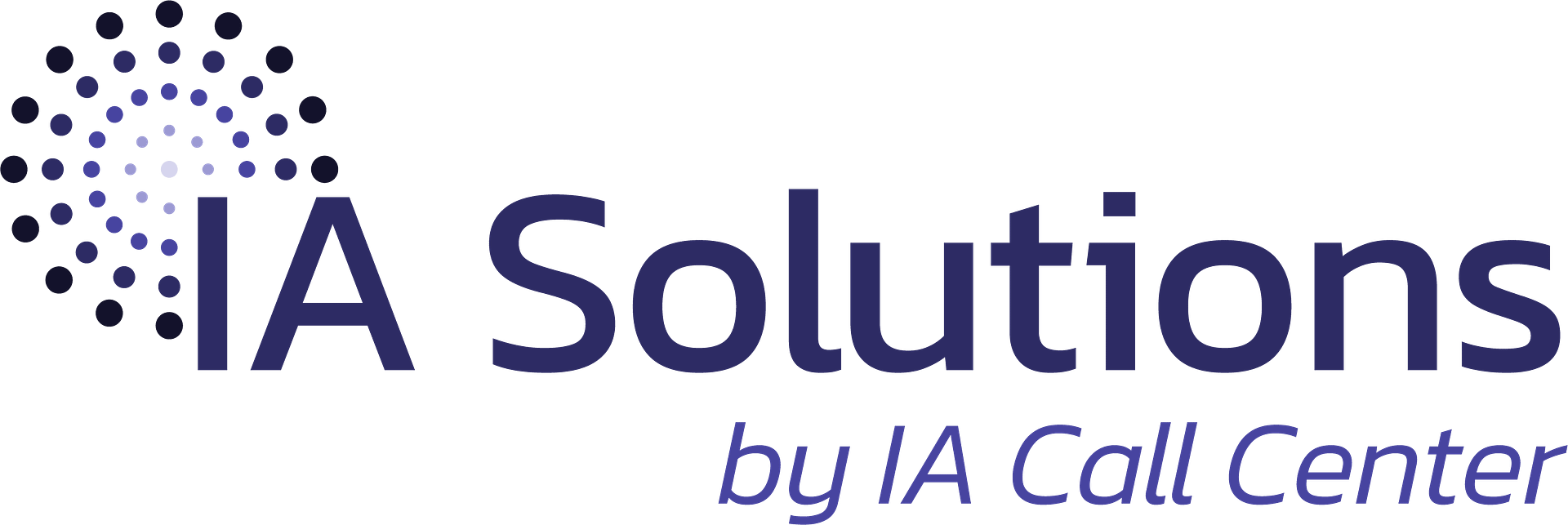An in-depth survey by Salesforce found that nearly 60% of customers would stop doing business with a company if customer service and experiences did not meet their expectations. Let that sink in for a moment – 60%! That is a lot of lost revenue, to be sure. Of course, it doesn’t have to be that way.
Delivering exceptional customer experiences can be hard, especially if providing customer service is not your core business. However, partnering with the right call center can help elevate your customer service efforts and provide better experiences.
That being said, how do you find the right call center partner? Well, that can be difficult, too. Therefore, we have put together a list of the 7 most important traits you should look for in a call center partner.
If you can find a call center that checks all the boxes on this list, chances are good that your relationship with that company will be beneficial and help you improve customer experiences and increase your bottom line. If a potential call center partner doesn’t have these traits, though, don’t waste your time – move on to a provider that does.

Offers the Service(s) You Need
While this may not be the most important trait a call center should have, it’s definitely the first one you want to check. When conducting your search for a call center, make sure that any potential partner provides the specific services your business requires.
It might be easy to assume that all call centers provide all types of calling and customer support services. However, this is simply not the case.
Specialization is Key
In many cases, call centers specialize in certain types of tasks. Some call centers may focus solely on providing answering and customer service; while others may concentrate on providing tech support or sales. Does the service specialize in inbound or outbound calling services? Do you need services that involve other channels (i.e., email, live chat, etc.)? These are just a few things you might need to consider.
You get the picture. Make sure the services provided by the call center align with the needs of your company.
Is the Right Size for Your Business
There are literally thousands of call centers around the world that perform various types of answering, calling, sales and support services. Some of them are corporate behemoths and some are mom & pop boutique shops. And while it might not seem like it at first, the size of a call center matters a lot.
This is not to say that bigger call centers are in any way better than smaller ones (or vice versa). Not at all. However, it is important to remember that the size of a call center can (and often does) have a direct impact on your business. Go with a vendor that’s too big, and your company might get lost in the crowd and not receive the personalized attention and support it needs. Go with a provider that’s too small, and you might not receive the resources or scalability your customers require.
When trying to determine how big or small your call center partner should be, it’s prudent to consider the size of your own company. Generally speaking, larger companies require more agents and resources than smaller organizations do. However, if your call and support needs are more modest, or if you require specialized services, smaller boutique operations may be a better fit.
Whichever call center provider you choose to partner with, ensure that they have the resources you need to succeed. If you require raw numbers and volume, go with a larger provider. If you require services that demand attention to detail, highly technical expertise or knowledge, or tailored customization, a smaller call center may be what you need.

Has Ability to Scale if Needed
As it relates to call centers, most people think of scaling as merely being the act of adding more agents to an account when needed. And while this may be true in some scenarios, it’s not the only type of scaling you should consider when choosing a call center partner.
Larger call centers can generally “throw” more agents at an account relatively quickly. However, not all call centers can scale the actual services they provide to your company. For instance, if you need to add specialized services to your account, or customize those services, you might find that a smaller outfit has the flexibility needed to make those changes faster and more efficiently.
Change is Inevitable
If you expect you might need to later make considerable changes to your answering and customer service processes or methods, inquire about how the call center implements changes and if the provider has the staff and training resources to facilitate changes quickly. And, of course, also ask if the call center can scale personnel in a timely manner if needed.
Has the Experience You Need
With most types of businesses, longevity is a good indicator of stability and experience. Generally speaking, companies that have been in business for many years usually have more experience in their respective fields than those that started operations more recently (we ourselves have been in business for over 50 years). However, just because a call center has been in business for many years doesn’t necessarily mean they have the requisite experience to provide the particular type of service(s) your company requires.
For instance, a call center provider that typically provides technical support services for clients may find it hard to change gears and start doing outbound sales calls (and vice versa). As we mentioned above, many call centers specialize in certain aspects of the business and may perform some tasks better than others.
Before you decide on a call center partner, make sure that any potential vendor has verifiable experience providing the types of call center services you require, as well as experience in your industry or vertical. Not having to start from scratch with teaching a call center partner the ins and outs of your industry can save lots of valuable time and resources.
Has Ability to Provide Effective Training
Even if a potential call center partner has considerable experience working with businesses in your industry, there is still probably a lot of work to be done – before the provider can fulfill requirements specific to your company. Therefore, it’s important that the provider have a proven track record of providing excellent agent training.
If yours is like most businesses, you have your own way of doing things; and this includes how you want customer service or support handled. Therefore, a good call center partner needs to be willing (and able) to accommodate any related processes or methods that are specific to your brand or company. So, how is this done? Training.
Client Specific Training
The best call center providers offer customized training programs designed to teach agents everything they need to know about handing calls and support for your business specifically. Of course, these programs will require some input from you. But in the end, though, the training programs should produce outstanding representatives for your business without taking months to implement. Effective call center training programs should provide productive results relatively quickly.
Invests in Modern Technology
While a professional management team and agents are a call center’s most valuable assets, good technology probably comes in at a close second. The technology that a provider uses is directly related to how well that call center can perform its core functions – to answer and make calls, as well as provide professional customer service and support.
Technology is the backbone of any call center and is something that ties into everything they do. From the telephony system to call center software, from the headsets agents wear to the display setups they use, it’s all important. The two most important types of technology (from the standpoint of you as a potential client) are telephony and the call center software used by the potential partner.
If the provider uses outdated hard-wired phone lines or proprietary in-house call center software, they may not be able to provide modern calling features or keep up with calls during peak periods. These days, the best call centers use state-of-the-art VoIP (Voice over Internet Protocol) phone systems that enable them to quickly add as many phone lines as needed to facilitate consistent services to their clients. Additionally, better call centers use cloud-based software systems, instead of limited, proprietary applications. Cloud-based call center software not only enables better customer experiences, it also provides security and stability.
Preparing for the Worst
Another technology-related trait to look for in a call center partner is how prepared they are for potential outages or service interruptions. Even the best call centers cannot predict or prevent natural disasters, power grid failures, or extreme weather events. Therefore, it is essential that you plan for these types of events by having backup locations or systems in place to minimize downtime and ensure continuity of service. The best call centers already have these contingencies in place and should be able to share them with you before you commit to a partnership.
Before you commit to a potential call center partner, ensure that you ask about their technology infrastructure. After hearing what the provider uses, a quick Google search on the technology should turn up some useful information. You can use this information to gauge how modern the technology is and how effective it will be in helping you make the most of your call center investment. Better call center technology equates to better performance and efficiency (from a technical standpoint). Of course, agent performance and professionalism will play perhaps even more important roles.

Provides Useful Reporting and Metrics
When customers call in to a call center (or when call center agents call out), all sorts of data concerning calls is collected (or at least it should be.) Better call centers can help you turn this raw data into useful and insightful reports, which can help improve customer services and experiences across the board.
According to CX-industry-related sites like Time Doctor (and many others), there are 5 to 10 types of reports call centers need to generate in order to provide insightful data to their clients. And while the reports discussed on those sites are indeed important, they are also the most basic. We would argue that there are many other types of reports and metrics that a good call center partner should be able to provide to their clients.
Good Data Helps Create Good Customer Experiences
Providing excellent customer service and experiences requires a lot of planning, hard work, and prudent decisions on how to best implement those plans while maximizing efficiency. However, creating the plans and deciding on the processes and methods needed to make them work requires something else — data.
Customers (or would-be customers) call for all sorts of reasons. Sometimes, they call for support or help, and other times, they call for general product or service information. And, other times still, they call to complain or seek help with issues or problems that have yet to be resolved. If you don’t have relevant call data, you don’t know why people are calling your company or what’s being done to help them and provide better customer service.
Call Data to Consider
The best call center partners can provide you with just about any type of call-related data you can imagine. And while many call centers have very technical terms for the various data gleaned from calls, here are some of those in a more user-friendly format (without all the techno-speak):
- Why are people (customers) calling your business? Are most callers calling for product information? Or, are they calling with problems or to ask for support? This type of information is crucial in developing and implementing effective customer service strategies.
- How many times do callers need to contact your CX team before their issues or problems are resolved? Are problems handled during the first call? Or, do they have to call multiple times before problems are solved? Finally, do agents frequently need to escalate issues to supervisors or management? This type of data can help you find problems in your customer service processes and help you streamline or improve resolution times and efficiency.
- How much time is being spent helping customers during each call? Are agents able to help and move on to the next customer in a few minutes? Or, do agents typically have to spend 10, 20, 30 minutes, or more to help? This important call data can help you analyze and identify potential training needs that can help improve efficiency and overall customer satisfaction.
Of course, these are but a few types of data and reports that a good call center partner should be able to provide; there are certainly many more. The bottom line is that your call center partner should be able to provide data, reports, or metrics that help you better understand your customer service and support operations, as well as offer insights on how to improve them.
IA Solutions by IA Call Center – A Partner You Can Trust
IA Solutions by IA Call Center has been providing best-in-class call center services for over 50 years. With that kind of experience, we know what it takes to provide the absolute best possible service and experiences for our clients’ customers. We don’t only excel at inbound customer service, though, our skilled outbound-calling teams have proven track records of great results as well.
When you choose to do business with IA Solutions by IA Call Center, you not only get access to our global team of expert agents and representatives, you also gain a true partner. And once you decide to partner with IA Solutions by IA Call Center, you’ll quickly find that our agents and management team work as hard as you do to ensure your company’s success by providing exceptional customer experience and support services. At IA Solutions by IA Call Center, we truly understand and believe that if your business doesn’t prosper, then neither does ours.
If you would like to learn more about how partnering with IA Solutions by IA Call Center can help improve your customer experience and support operations (as well as your bottom line), please don’t hesitate to contact us. When you do, we’ll be happy to schedule a no-cost, no-obligation consultation so we can discuss how IA Solutions by IA Call Center can best help. To schedule your obligation-free consultation, please see the Contact button at the bottom of the page. Alternatively, please contact us via email at [email protected] or call us toll free at 888-356-8866. We look forward to hearing from you.















